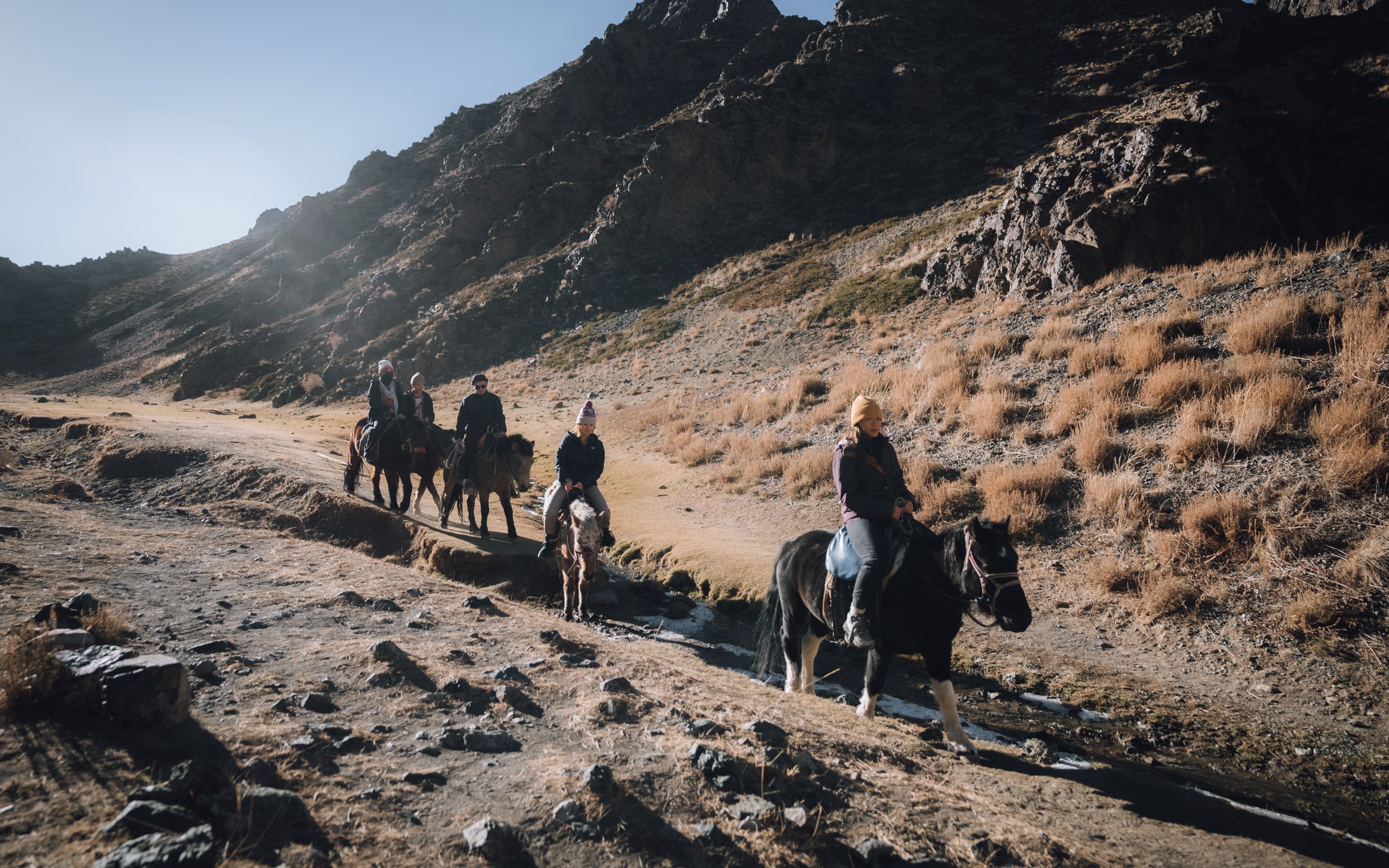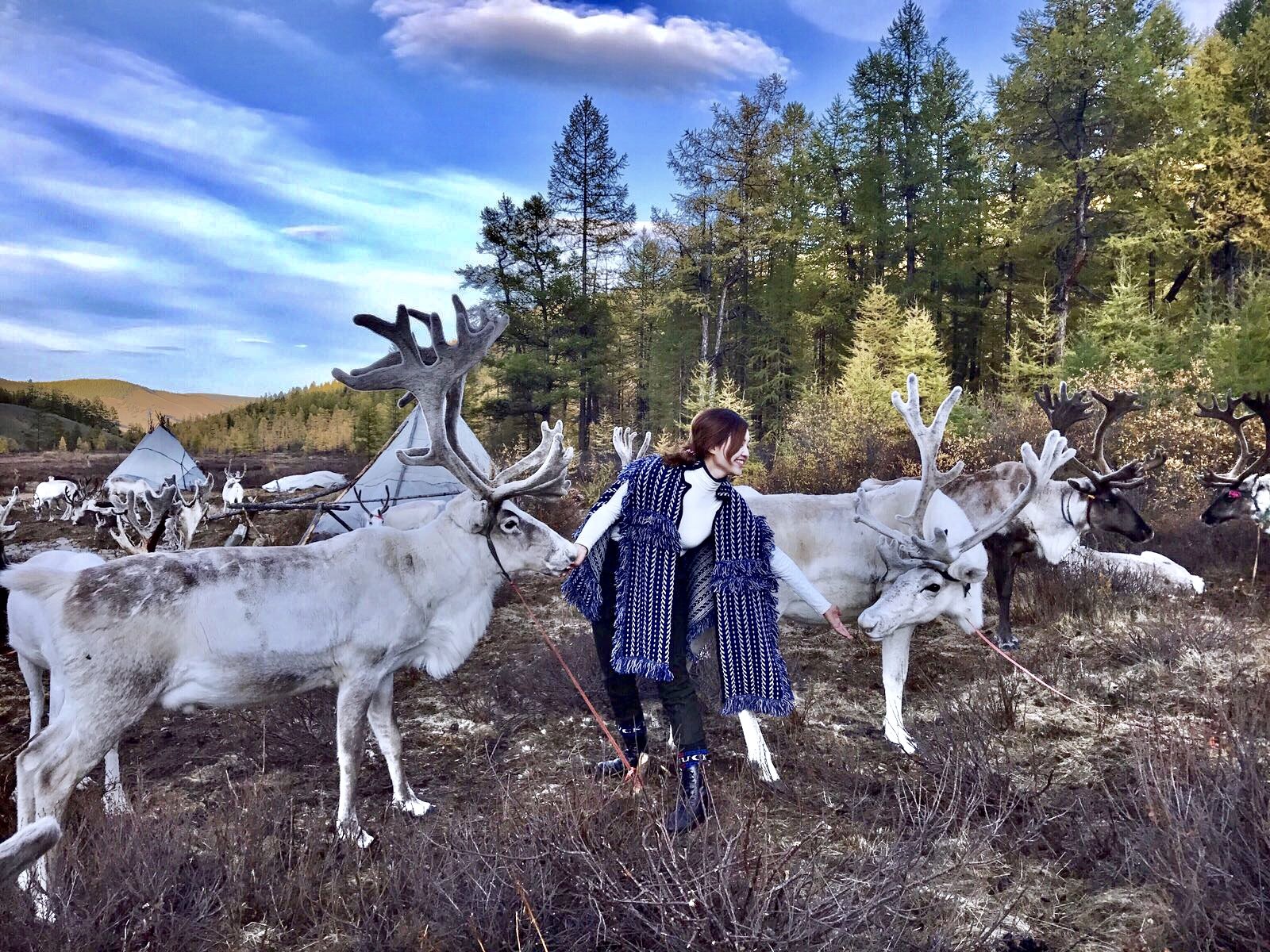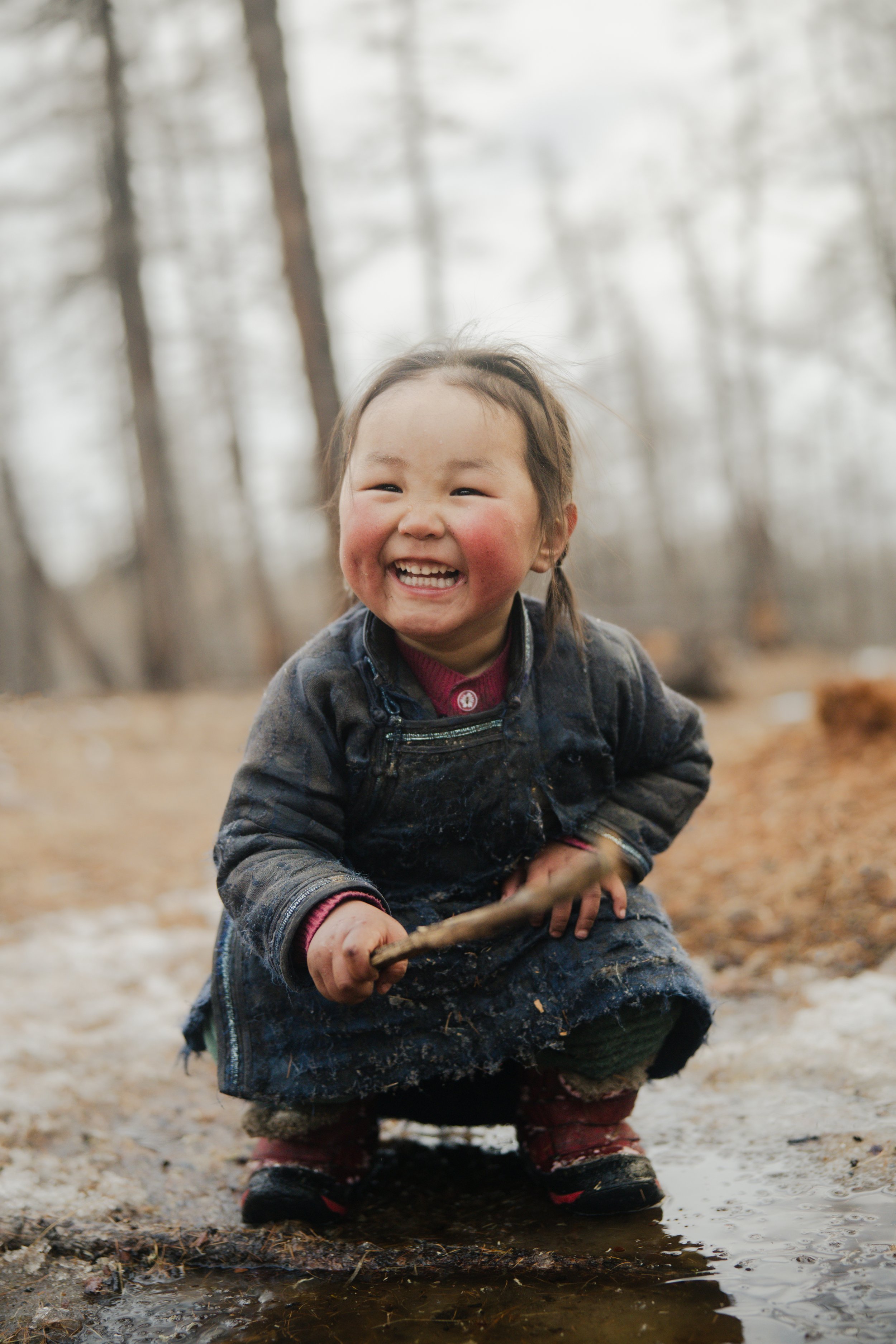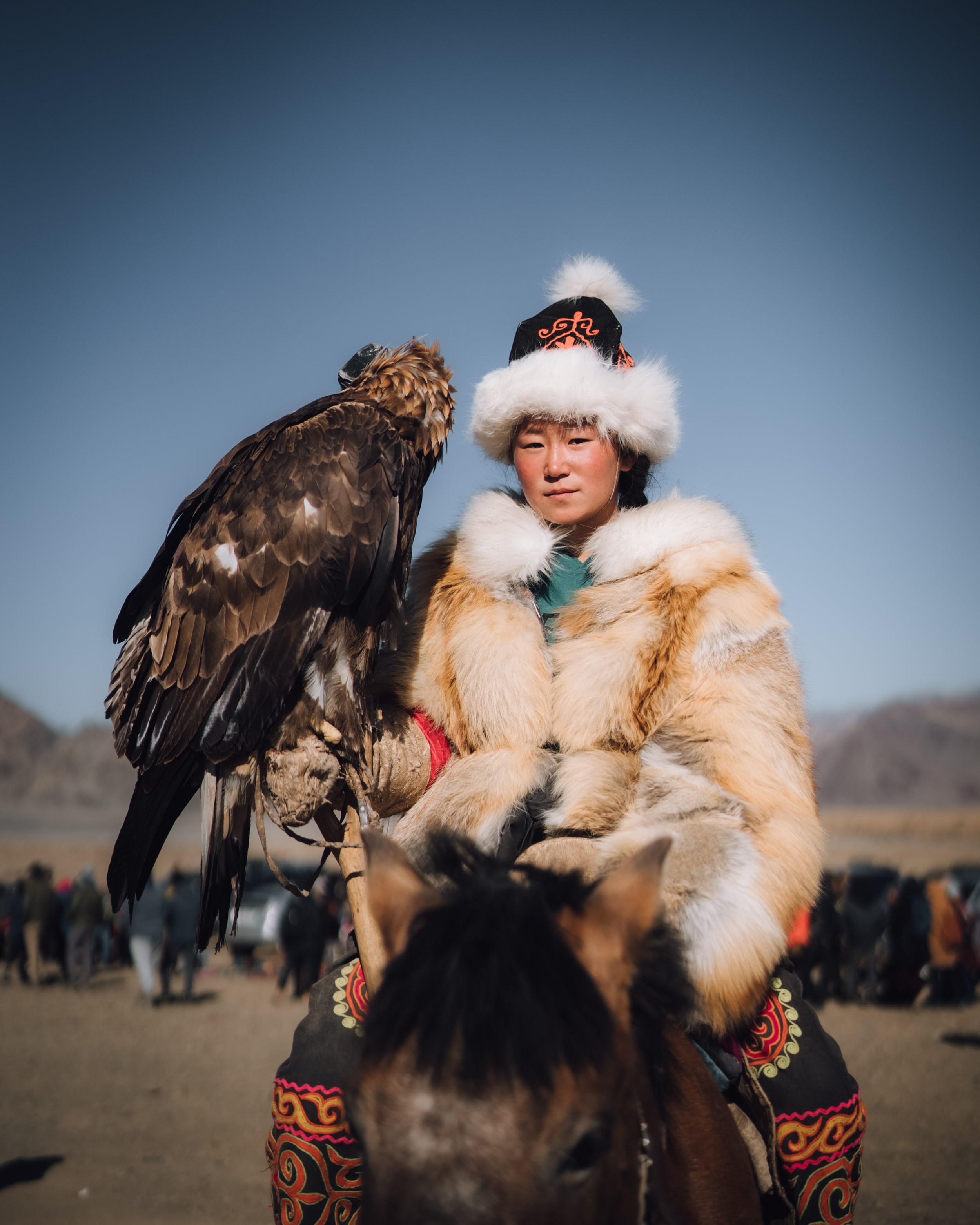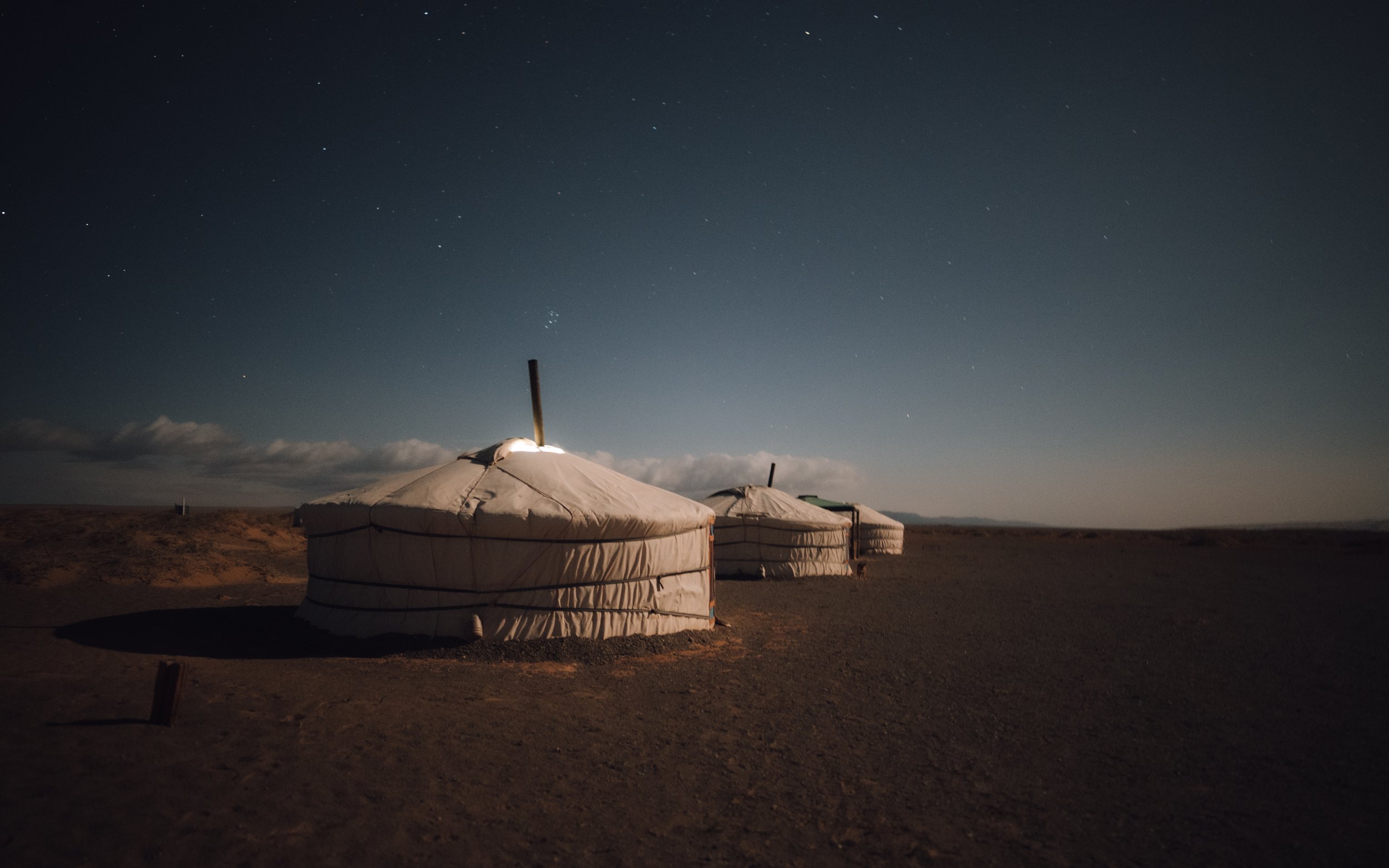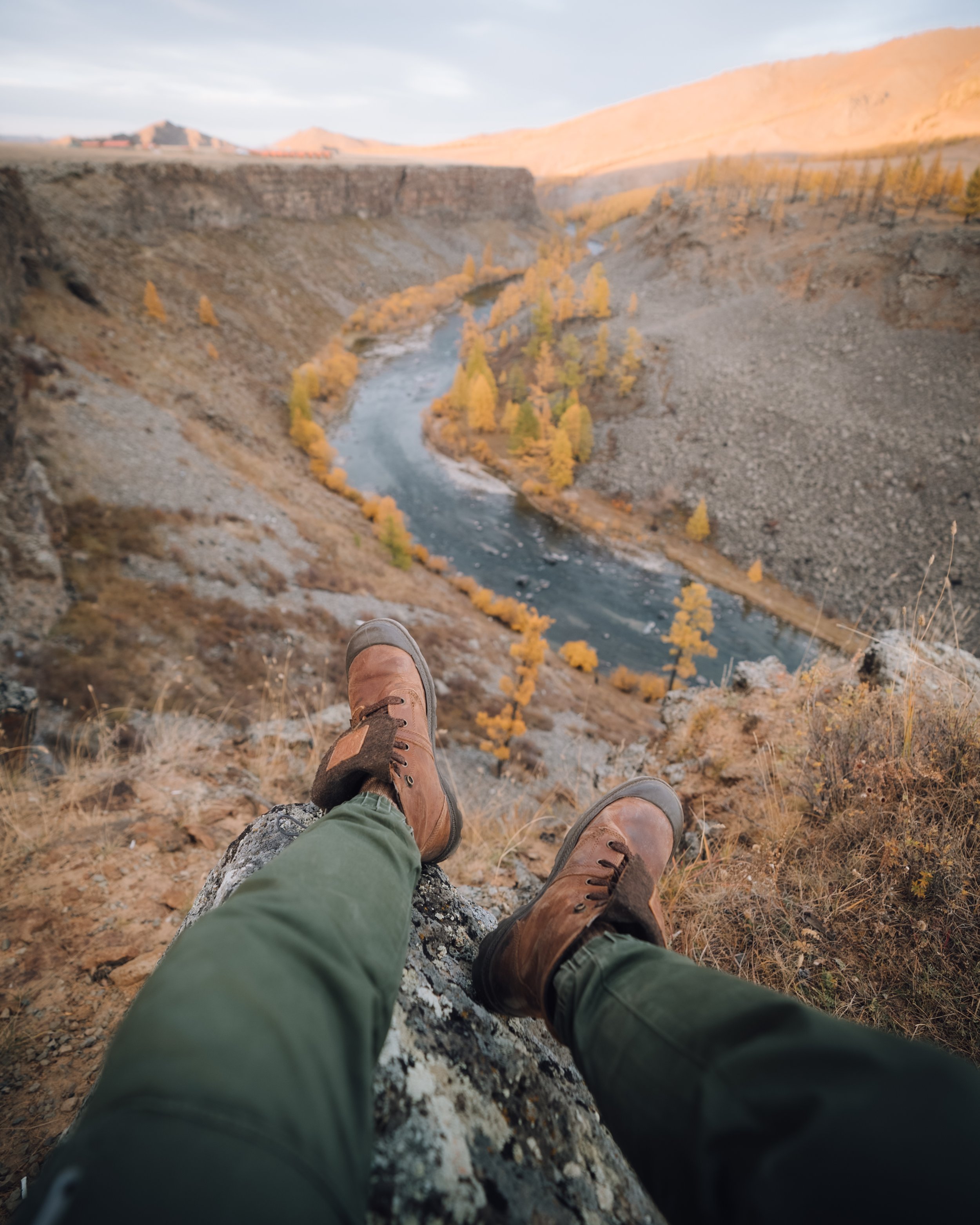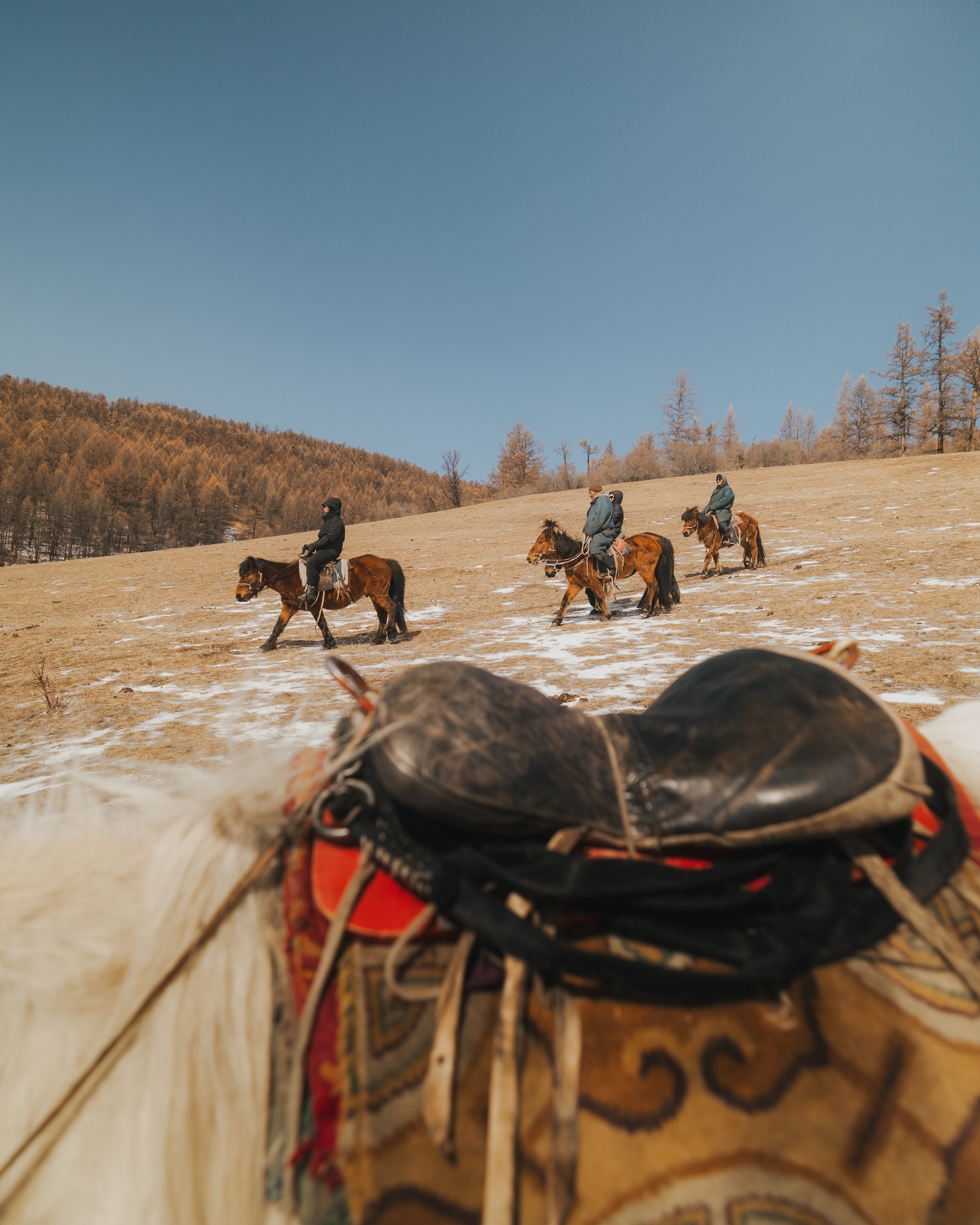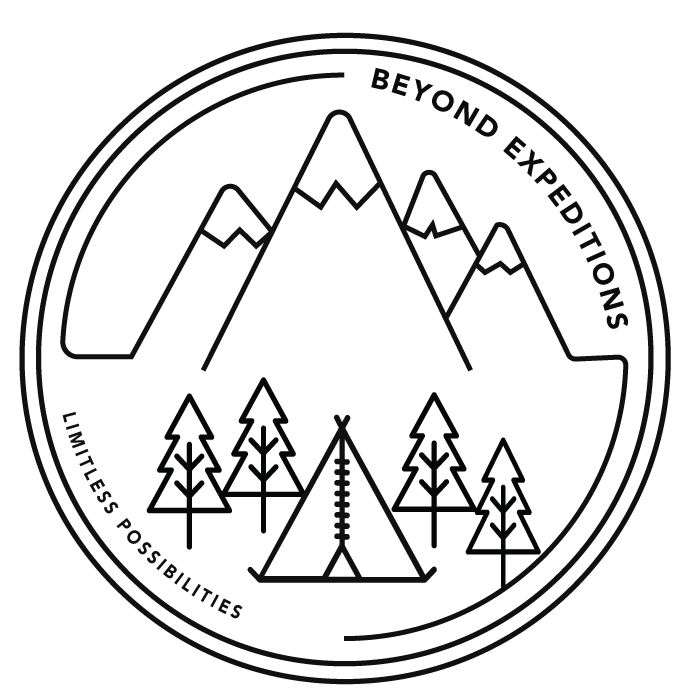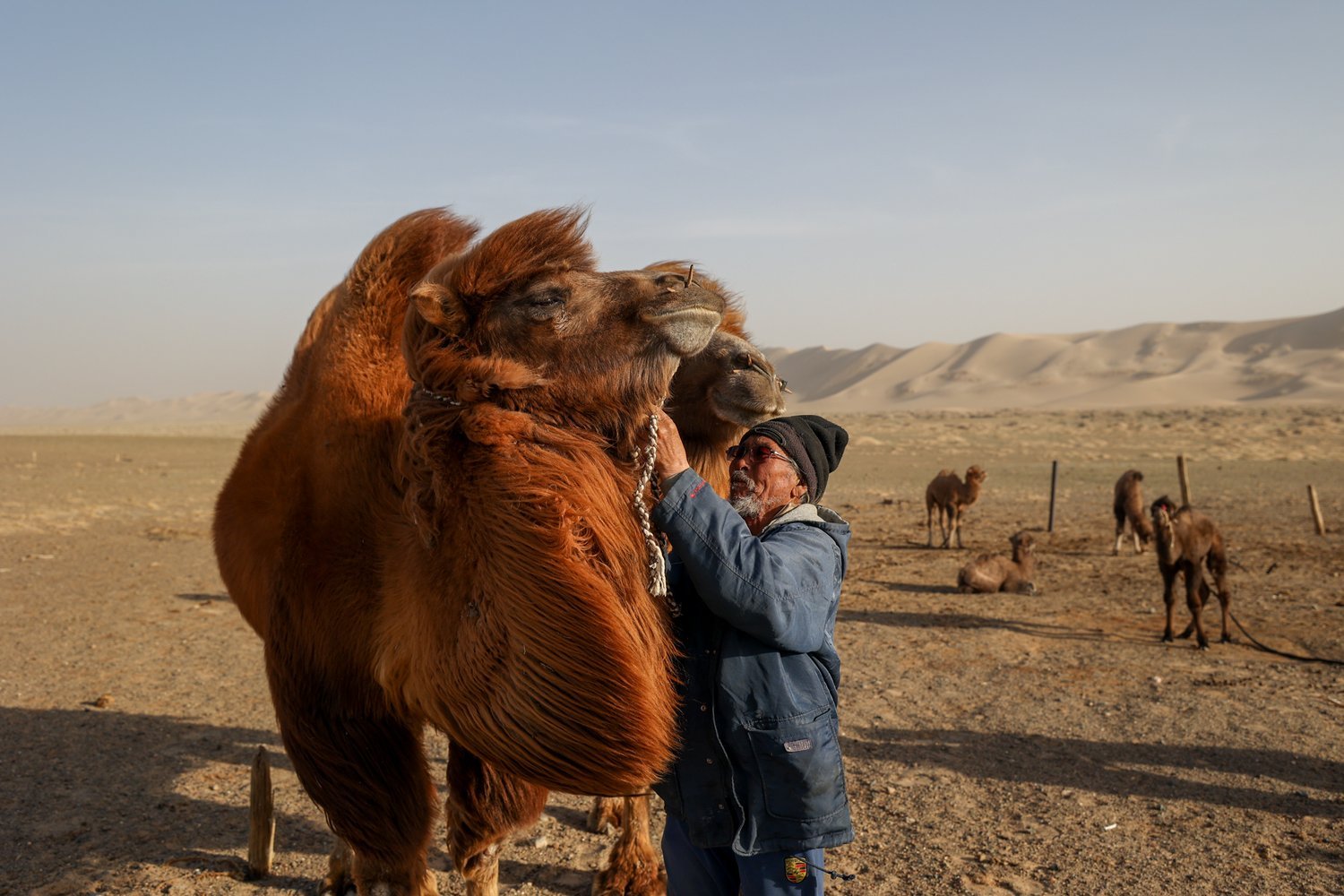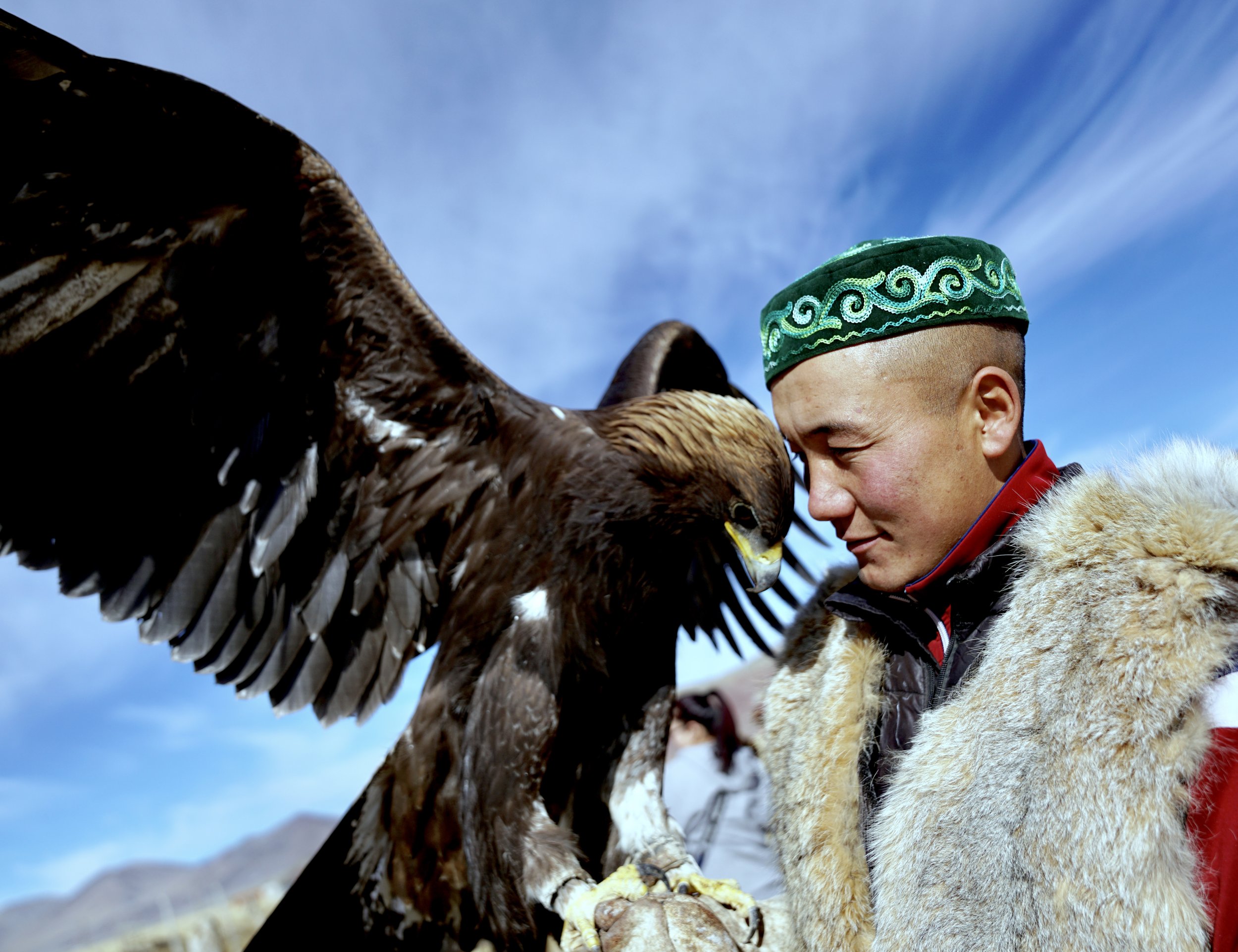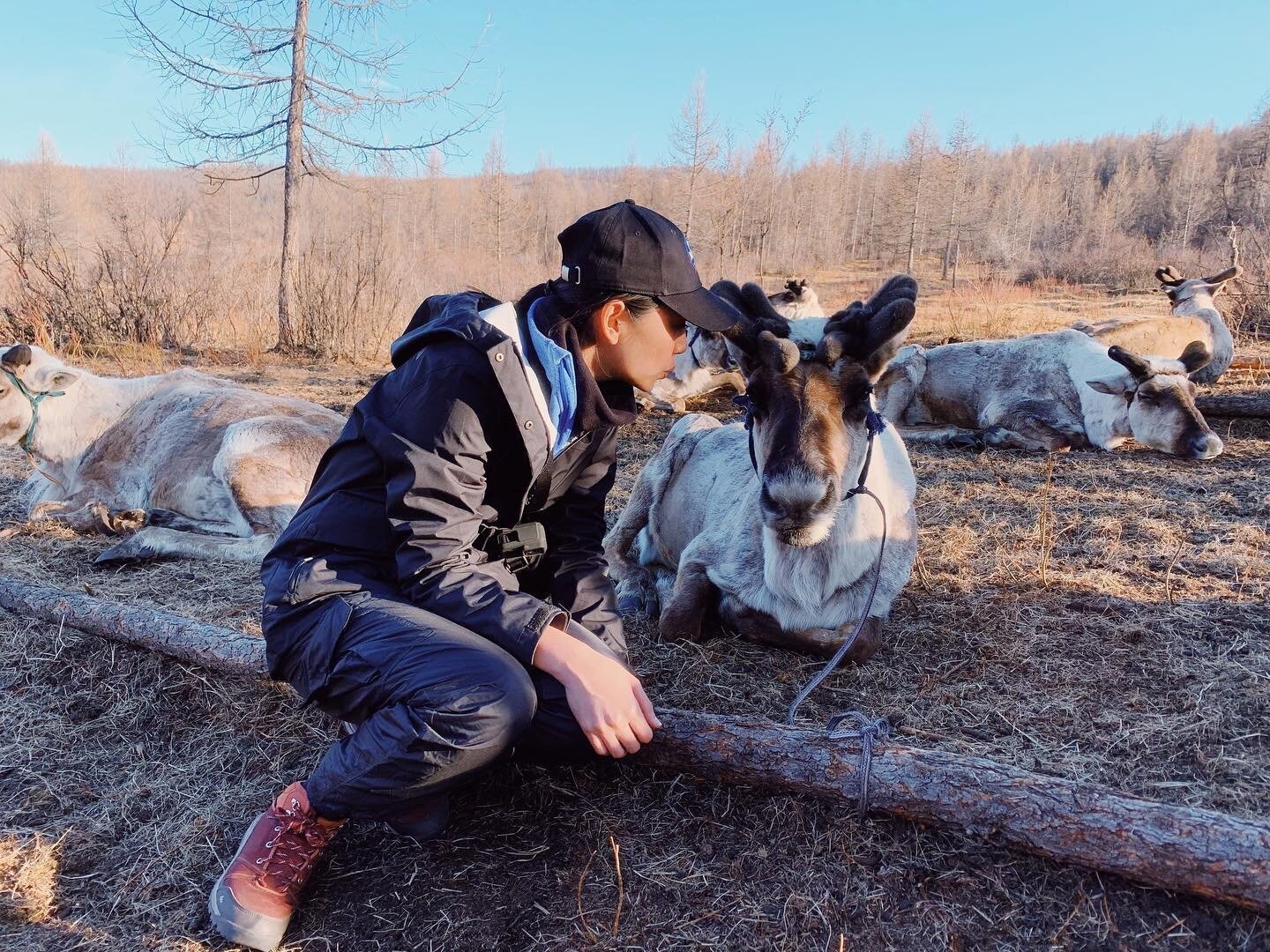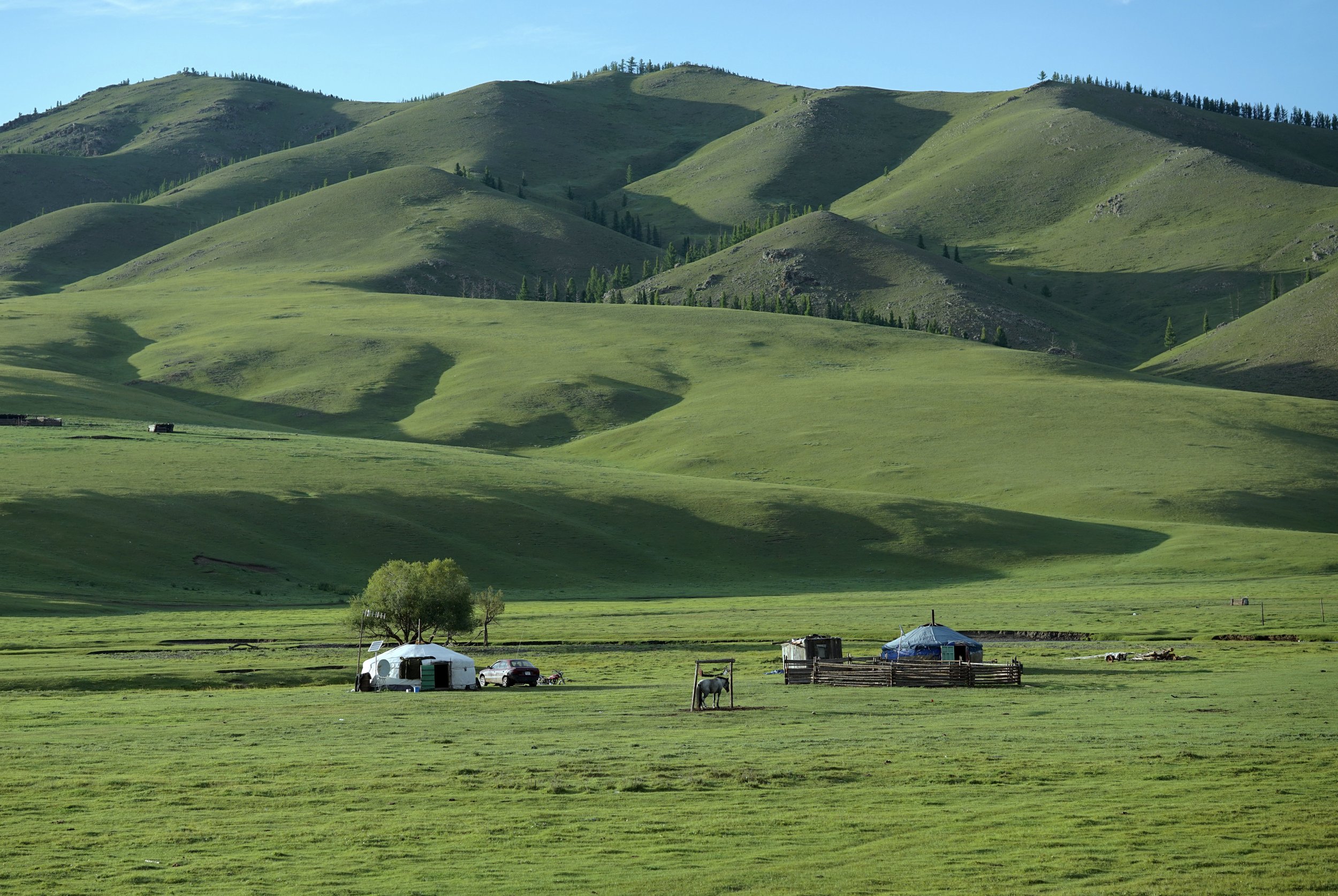
MONGOLIA
Land of the eternal Blue Sky
Unleash your spirit of adventure and discover the untamed beauty of Mongolia, where vast landscapes, nomadic traditions, and raw wilderness ignite the explorer within!
Beyond being the historic home of the Mongols and the great Genghis Khan, Mongolia stands as one of the last frontiers, where ancient traditions merge harmoniously with modern concepts, creating a tapestry of experiences that will leave you breathless.
From urban grunge to the awe-inspiring Gobi Desert and immersive nomadic experiences, Mongolia beckons as the ultimate destination for adventurers seeking unforgettable encounters and untamed beauty.
Now, its time to decide which part of Mongolia shall cross off as your next adventure!
North Mongolia TAIGA
-
EXPERIENCE MAGICAL TAIGA: MEET THE MYSTICAL TSAATAN REINDEER HERDERS IN NORTHERN MONGOLIA
Day 1: Arrival in Ulaanbaatar
Day 2: Khutag Undur, Bulgan Province
Day 3: Murun City, Khuvsgul Province
Day 4: Tsagaan Nuur Sum, Khuvsgul Province
Day 5: Taiga
Day 6: Taiga
Day 7: Return to Tsagaan Nuur Sum, Khuvsgul Province
Day 8: Murun City, Khuvsgul Province
Day 9: Amarbayasgalant Monastery
Day 10: Drive back to Ulaanbaatar
Day 11: Depart Ulaanbaatar
North Mongolia TAIGA In a NutshellLandscape Type
Most People Love:
Mountains, coniferous trees
REINDEER, TSAATAN NOMADS, rawness
South Mongolia GOBI
-
LIVE THE LEGEND OF GOBI WITH THE MYSTICAL CAMEL NOMADS OF SOUTH MONGOLIA
Day 1: Arrival in Ulaanbaatar
Day 2: Tsagaan Suvarga White Stupa
Day 3: Yoliin Am Ice Valley
Day 4: Khongor Sand Dunes
Day 5: Khongor Sand Dunes
Day 6: Bayanzag Flaming Cliffs
Day 7: Baga Gazriin Chuluu Rock Formations
Day 8: Drive back to Ulaanbaatar
Day 9: Depart Ulaanbaatar
South Mongolia GOBI In a NutshellLandscape Type
ROCKY, RUGGED, Desert
Most People Love:
sand dunes, GOBI nomads, BACTRIAN camels
West Mongolia ALTAI
-
WANDERING THE WILD, WILD WEST: A VOYAGE INTO THE LAND OF THE KAZAKH GOLDEN EAGLE HUNTERS
Day 1: Arrival in Ulaanbaatar
Day 2: Fly to Bayan - Olgii
Day 3: Tolbo Lake
Day 4: Shiveet Khairhan Mountain
Day 5: Altai Tavan Bogd National Park
Day 6: Altai Tavan Bogd National Park Potanian Glacier
Day 7: Khurgan and Khoton Lake
Day 8: Tsengel Khairkhan Mountain
Day 9: Sirgali Area
Day 10: Drive back to Bayan - Olgii
Day 11: Fly back from Bayan – Olgii to Ulaanbaatar
Day 12: Depart Ulaanbaatar -
THE LEGENDARY KAZAKH GOLDEN EAGLE HUNTING FESTIVAL
Day 1: Ulaanbaatar
Day 2: Karakhorum Ancient Capital
Day 3: Terhiin Tsagaan Nuur White Lake
Day 4: Telmen Lake
Day 5: Ulaagchiin Haar Nuur National Park
Day 6: Senjit Khad Rock Formations
Day 7: Bayan-Olgii
Day 8: Golden Eagle Festival Day 1
Day 9: Golden Eagle Festival Day 2
Day 10: Domestic Flight back to Ulaanbaatar
Day 11: Depart Ulaanbaatar
LIMITED SPOTS for Annual Golden Eagle Hunting Festival!
West Mongolia altai In A NutshellLandscape Type
mountainous
Most People Love:
kazakh eagle hunters, culture, food
Note: One of our ‘hot-selling' expeditions that only happens once a year in Oct, so don’t miss it!
Central Mongolia
-
CRUSADE ACROSS CENTRAL MONGOLIA: ANCIENT HEARTLAND OF ENCHANTING NOMADS AND EPIC NATURE
Day 1: Arrival in Ulaanbaatar
Day 2: Terelj National Park
Day 3: Mongol Sand Dunes
Day 4: Orkhon Waterfall
Day 5: Tsenher Hot Spring
Day 6: Terkhiin Tsagaan Lake
Day 7: Khorgo Volcano
Day 8: Kharakhorum Ancient Capital
Day 9: Drive back to Ulaanbaatar
Day 10: Depart Ulaanbaatar
Central Mongolia In A NutshellLandscape Type
steppe, meadows, lakes
Most People Love:
relaxing, peaceful, laidback, waterfall
MONGOLIA Trip FAQ
-
Mongolia ranks among the safest destinations globally for tourists. While petty theft incidents may sporadically transpire in urban areas, vigilance about your surroundings is always advisable.
In the countryside, you'll be in the capable hands of our expedition Mongolian guide and Mongolian driver, both seasoned locals well-versed in the terrain. Furthermore, your accommodations will be provided by our trusted nomadic families, whom we've had the privilege of supporting since 2017.
-
If you hold a Singapore passport, no. You’re allowed to enter and stay in Mongolia for 30 days without a visa, which is more than sufficient for our trip!
If you hold another country’s passport, you can check whether you need a visa here. If you do need a visa, let us know so we can help you out with the additional information required to fill it. Please note that we do not cover visa application fees.
-
Travel insurance is your safety net for unexpected stuff like flight hiccups and surprise medical moments. It’s the unsung hero of hassle-free travel. Trust us, a bit of preparation goes a long way. So, buckle up, worry less, and let the adventures roll with the peace of mind that comes with travel insurance!
Unsure of which to go for? Go ahead and explore and compare potential travel insurance providers!
Here is a good one.
This platform offers a comprehensive search feature that allows you to compare various insurance policies specifically tailored for adventure tours. This platform is a good kickoff for information, but just so you know, we’re not the gurus in this area. For the real scoop on coverage, exclusions, and anything special for extreme sports, reach out to the insurance companies directly. They’ve got all the details!
If you're looking for premium coverage, do consider International SOS. International SOS specializes in health and security services, offering medical assistance, travel risk management, and emergency evacuation services.
-
No. There's not much trekking or hiking involved, unless if you decide to explore the wilderness during your free time each evening. It's worth noting that we've had the pleasure of hosting participants ranging from a sprightly 5 years old to a seasoned 73 years old. Here are some key considerations:
Be prepared for a horseback ride of approximately five to seven hours specifically on our North Mongolia Taiga expedition. The rest of the other expeditions will typically involve shorter rides, around an hour or so.
When spending nights with the Tsaatan reindeer herders on our North Mongolia Taiga expedition, you'll rest in our sleeping bags within teepees on the soft but uneven earthy ground. It's a very basic and rustic experience.
Keep in mind that off-road drives to reach various locations in the countryside can be quite bumpy due to unpaved roads.
-
In the capital city, Ulaanbaatar, we will be accommodated in three-star hotels. For your comfort, twin-sharing rooms will be assigned, with roommates of the same gender, unless you are a couple or special arrangement made ahead.
In rural settings, out in the countryside, lodging will be communal, with participants of various genders sharing accommodations. Our stay will include guesthouses, traditional gers/yurts, or Tsaatan teepees (exclusive to our North Mongolia Taiga expedition). Throughout most of the journey, beds will be provided. It's important to acknowledge that accommodations in rural areas progressively become more basic. Remember, you've chosen to embark on an adventure with us for an authentic and unfiltered experience, not a luxury trip. Please consider this before expressing concerns.
However, it's important to note that during the two nights spent with the Tsaatan reindeer herders, you will experience a more rustic setting. Sleeping will take place in teepees, using our three/four-season sleeping bags, on soft yet uneven earth ground. This unique experience offers an authentic connection with the culture and environment.
-
In Mongolia, the official currency is the Tugrik (MNT). Accessing cash is possible through ATMs and banks in Ulaanbaatar, the capital city. It is essential to ensure that your card, particularly one with Maestro capability, is suitable for successful withdrawals. Upon your arrival at Ulaanbaatar airport, you can exchange local currency at one of the airport offices after collecting your luggage. Please be prepared with sufficient USD or euros for conversion to the local MNT; note that currencies other than USD or euros, such as SGD, may not be accepted.
Moreover, credit cards, especially Visa and Mastercard, are widely accepted, even in rural towns and villages. It is crucial to activate your overseas pin code for card transactions. Notably, select locations in Ulaanbaatar also accept U.S. dollars.
We recommend that each individual carries a cash reserve of approximately $100 to $300 or more in U.S. dollars or euros, depending on your intended purchases and considering potential tipping scenarios.
For your reference, the exchange rate is approximately 3,500 Mongolian Tugriks (MNT) for 1 USD. The highest denomination of the Mongolian Tugrik is the 20,000 MNT note.
-
Mobile phone signal quality in urban areas of Mongolia is generally reliable, but it can be inconsistent or even unavailable in remote regions. To enhance your connectivity while in Mongolia, we recommend obtaining a local SIM card upon your arrival, which you can purchase at the airport or in Ulaanbaatar.
For optimal telecom services, consider the following providers based on your location:
Ulaanbaatar and major urban areas: Mobicom
Rural areas: Unitel and GMobile are recommended for better coverage.
-
Temperature ranges in Mongolia exhibit significant variations between day and night, a phenomenon accentuated by the country's unpredictable and fluctuating climate. The continental weather experiences four distinct seasons:
Winter (November to February): Blanketed in snow, the scenery becomes a serene winter wonderland.
Daytime: Typically below freezing, ranging from -10°C to -20°C (14°F to -4°F).
Nighttime: Much colder, often dropping to -30°C to -40°C (-22°F to -40°F) or even lower in some areas.
Note: Winter weather is capricious, with temperatures occasionally hovering around -10 degrees Celsius but can plummet to extremes of -30 or -40 degrees Celsius. Always pack essential gear for extremely cold conditions.
Spring (March to May): As snow melts, the land is adorned with vibrant greenery and blooming wildflowers.
Daytime: Gradually warming up, ranging from 0°C to 15°C (32°F to 59°F).
Nighttime: Still chilly, with temperatures often dropping below freezing, around -5°C to 5°C (23°F to 41°F).
Note: Mongolia's spring introduces unpredictability, and occasional snowfall may surprise, emphasizing the need for adaptable clothing.
Summer (June to August): Lush expanses burst forth with verdant greenery, creating a vibrant and lively atmosphere.
Daytime: Warm to hot, ranging from 15°C to 30°C (59°F to 86°F) or higher, especially in the Gobi Desert.
Nighttime: Generally cooler, ranging from 5°C to 15°C (41°F to 59°F), with some regional variations.
Note: Despite it being summer, the weather's unpredictability persists, with occasional snowstorms or chilly spells. Always be prepared for varying conditions. The greenery is a result of ample rainfall so remember to pack for this too!
Autumn (September to October): The landscape is painted with golden hues and vibrant fall colors, creating a picturesque scene.
Daytime: Mild temperatures, ranging from 0°C to 15°C (32°F to 59°F).
Nighttime: Cooling down, with temperatures dropping to around -5°C to 5°C (23°F to 41°F).
Note: Autumn brings fluctuations, and temperature changes signal the approach of winter. Prepare for cooler evenings and potential surprises in the weather.
Mongolia's weather is renowned for its unpredictability, from summer snowstorms to drastic temperature shifts. Whether exploring the Gobi Desert or the mountainous terrains, it's crucial to overpack essential gear for both hot and cold weather, ensuring a comfortable and adaptable journey through the diverse Mongolian landscapes.
-
After conducting extensive reviews over the course of several years, we have meticulously curated a comprehensive packing list intended to serve as your ultimate guide for your journey to Mongolia. However, it is advisable to adapt this list to align with the particular season, planned activities, and your individual requirements during your visit to Mongolia.
Should you have any uncertainties or require clarification on any aspect, please do not hesitate to reach out to us during our pre-trip briefing. Your comfort and preparedness are our top priorities.
-
Certainly, for your upcoming expedition, it is advisable to include supplementary gear and electronic items. These essentials encompass a headlamp, which proves invaluable during your rural sojourn, particularly in accommodations such as ger camps or for nighttime activities. Additionally, consider packing power banks to ensure your electronic devices remain charged throughout your journey. A personal First Aid Kit is also strongly recommended, equipped with fundamental supplies like hand sanitizers, analgesics, anti-diarrheal medication, wound ointment, adhesive bandages, blister care solutions, and motion sickness tablets, should they be required.
For an enhanced level of comfort, contemplate the inclusion of personal comfort items like eye masks, microfiber towels, an inflatable travel pillow, and earplugs. These additions will contribute to a more comfortable and convenient overall experience during your expedition.
Lastly, if you have a penchant for culinary exploration, you may wish to bring along your preferred local snacks, spices, and instant food options to add a flavorful dimension to your mealtime experience.
-
For your convenience, we recommend two specific types of bags on our expedition:
1. Daypack Selection: We suggest opting for a 15-30 litre daypack, complete with a rain cover. This size is both practical for vehicle transport and exploration. Your daypack will be handy for carrying essential items like your passport, wallet, camera, water bottle, spare clothing, snacks, and more. It's advantageous to choose one with a water bladder compartment for easy hydration. Quality daypacks can be found from renowned brands, such as Fjallraven, our preferred outdoor brand.
2. Check-In Bag: For your check-in luggage, we advise either a big backpack or a duffel bag. The weight limit for check-in luggage to Mongolia is 23 kg, so please keep this in mind. Remember to carry all your electronics with you as part of your hand luggage. Additionally, we recommend having a set of clothing, including warm gear like a beanie and gloves, in your hand luggage as a backup, in case your checked-in bag experiences delays or issues beyond our control.
-
Throughout the expedition, our dining experiences will vary. Some days will feature meals at small shops, cafes, or local town restaurants as we make pitstops along the journey. On other days, our dedicated Mongolian expedition guide, who also serves as our cook, will skillfully prepare a diverse array of cuisine for breakfast, lunch, and dinner. Your palate will be tantalized with options ranging from traditional Mongolian dishes to Western favorites like pasta.
For those with dietary preferences or restrictions, including halal, vegetarian, or vegan choices, rest assured that we have you covered. However, it's important to note that Mongolia is renowned for its meat-centric culinary culture, which may present fewer options for vegetarians and vegans. To cater to your specific taste preferences, we recommend planning to bring your own spices or condiments to enhance your dining experience.
-
We strongly recommend consulting a medical professional to assess your specific health needs and adhere to Mongolia's health guidelines. Your well-being is our priority, and individualized medical advice ensures a safe and healthy journey.
Typical recommendations include Hepatitis A and Tetanus vaccinations, while additional vaccines to consider are Hepatitis B, Rabies, Tick-borne Encephalitis, and Typhoid. Please note that a yellow fever vaccination certificate is not required for this country.
-
Sanitary facilities in Mongolia can vary widely depending on whether you are in urban areas or the more remote countryside. Here is an overview of what to expect:
Urban Areas (Cities and big towns)
In cities like Ulaanbaatar and major towns, you will find modern public sanitary facilities that are clean and well-maintained.
Many hotels and guesthouses offer Western-style toilets and hot water for showers, although the quality depends on the establishment’s standard.
Rural Areas:
In smaller towns and villages, sanitary facilities may be less developed.
Traditional pit toilets (outhouses) are common in rural homes and guesthouses, which may not have running water or toilet paper.
Outdoor toilets might be the norm when travelling to remote regions, and they can be very basic, such as a hole in the ground with a wooden shelter.
The most basic will be out in the wild, covered by the bushes or trees!
Nomadic Areas:
In more remote and nomadic regions, you may encounter very basic facilities or even have to rely on nature for your sanitation needs.
Ger camps:
Many tourist ger camps in popular areas provide simple but clean facilities. However, don’t expect the same level of comfort and cleanliness as you would find in urban areas.
Hence, it is advisable to carry your own hand sanitizer, wet wipes, disposable toilet seat covers and toilet rolls when travelling in Mongolia. There are multiple shops around the urban area to stock up on these items and you do not need to bring so many of them from your home.
-
Airlines: We typically collaborate with international airlines such as Asiana Airlines, Cathay Pacific, Mongolian Airlines, Air China, or Korean Airlines for our Mongolia expeditions. Please note that the airline selection may vary based on your travel dates.
Transit Information: Since there are no direct flights to the destination from Singapore, a single transit is required to reach the final destination. Since we primarily collaborate with international airlines, your luggage is typically transported directly from your departure point to your final destination. However, it's essential to be aware that the specific flight schedule and airport regulations can vary. Unlike certain airports, such as Delhi, India, where rechecking may be necessary for security reasons, most of the time, you won't need to worry about rechecking your baggage during transit.
Handling Your Own Flight Bookings: If you prefer, participants are welcome to manage their own flight bookings. We allocate a flight budget per participant, which will be deducted from the total tour cost. This option allows you to choose your preferred transit country and even arrange layovers according to your preferences. Simply secure your flight schedule and provide us with the details, and we will coordinate planning, including airport transfers, for a seamless experience.
-
Please remember to specify your final destination, rather than your transit stop, when informing the check-in counter staff. Utilize the manual check-in counter during airport check-in, not the automated machine, to guarantee the direct transport of your checked luggage to Ulanbaatar, Mongolia.
For your return journey from Mongolia, kindly inform airline staff of your final destination, to facilitate a smooth flight process. Ensure you carry your electronics with you and avoid checking them in before your flights.
We aim to streamline your travel experience as much as possible. On our group expeditions, you have the flexibility to either meet at Ulanbaatar Airport upon arrival or coordinate offline with fellow travelers to check in together. Choose the option that best suits your preferences.
Lastly, upon your arrival at Ulaanbaatar Airport, after retrieving your baggage, our dedicated Mongolian guide(s) is there to warmly welcome you at the immigration exit, identifiable by the Beyond Expeditions logo in a photo they will be holding. Also, they are already included in the WhatsApp group chat with you, so in the event you inadvertently miss them as you exit immigration, simply send a message in the group to alert them of your presence. While waiting, you can enjoy a cup of coffee at the Toms and Toms cafe located on the left.
-
Our adventure begins at Buyant Ukhaa International Airport (ULN), also referred to as New Ulaanbaatar International Airport, situated approximately 45 kilometers (30 miles) southwest of the vibrant city of Ulaanbaatar, Mongolia.
Ulaanbaatar boasts a mix of traditional and modern elements, with bustling markets, historical sites, and a dynamic cultural scene waiting to be explored.
-
Absolutely! We love having a global squad on board. Whether you're from the heart of New York City or the serene landscapes of New Zealand, our expeditions are open to adventurers of every nationality.
Just give us a heads-up on where you'll be flying in from, and we'll make sure you're all set for the journey. We take pride in assembling a vibrant crew with diverse nationalities, backgrounds, and stories to share. Join the fun!
-
Our horse riding guide has been thoughtfully prepared to provide you with the essential knowledge for a safe and enjoyable experience. Please take the time to thoroughly review it through here: Horse-riding Safety Guide — your ultimate handbook!
It's important to note that the majority of our participants have little to no prior experience in horse or camel riding, which is perfectly acceptable. This expedition doesn't require prior expertise. However, our goal is to enhance your safety and ensure you feel well-prepared for this remarkable journey.
To further boost your horse riding skills and increase your confidence leading up to the trip, we have curated a selection of valuable video resources. We strongly recommend watching these videos multiple times before and during your expedition. They offer invaluable insights and tips to enhance your readiness and help you make the most of your adventure.
You can access the videos here:
1) Enhancing Horse Riding Skills
2) Essential Techniques for Horseback Riding
3) Mastering the Art of Horse Riding
Additionally, our Mongolian guide on each expedition will personally conduct a brief safety briefing and provide horse riding instructions before we begin the activity. Please be aware that due to Mongolia's rural nature and recent emergence in tourism, the explanations may not be as comprehensive as in more established locations like New Zealand or Iceland.
This is why we make every effort to thoroughly prepare all participants before the trip, ensuring they are well-equipped for this adventure. If you have any questions or need further clarification, please don't hesitate to contact us. Your enjoyment in Mongolia is our top priority, and proper preparation is essential for maximizing the experience.
-
Drone use is allowed in Mongolia, but there are several drone laws that need to be followed when flying in the country. You must ensure that you are adhering to the following drone laws when flying in Mongolia,
Do not fly your drone over people or large crowds.
Respect others' privacy when flying your drone.
Do not fly your drone over airports or in areas where aircraft are operating.
You must fly during daylight hours and only fly in good weather conditions.
Do not fly your drone in sensitive areas including government or military facilities. The use of drones or camera drones in these areas is prohibited.
We recommend you to do a thorough research on the rules and regulations of carrying your personal drones in your own country as well as in Mongolia, especially in airports and areas near sensitive locations.
-
For local emergency contacts in Mongolia, please keep these important numbers in mind:
101 for the Fire Department
102 for the Police
103 for Medical Emergencies
We also highly advise you to register with the Ministry of Foreign Affairs (SG) to ensure that you can be promptly notified and located in the event of a serious emergency. You can reach the Ministry of Foreign Affairs at (65) 6379 8000 or via email at mfa@mfa.gov.sg for further assistance and support.
-
Should an emergency arise, kindly inform our local expedition guide promptly. Subsequently, you can contact Scott, from our BE team, directly at +65 91150782. Scott will respond to your inquiry as soon as possible.
-
While exploring the picturesque landscapes of Mongolia, we highly recommend that all participants take precautionary measures by boiling tap water before consumption rather than using it directly from the tap.
Fortunately, bottled water is easily available throughout the country. We suggest getting additional bottled water during your visits to supermarkets, as our provision includes only one bottle per day. For more prolonged journeys, such as extended treks and horseback excursions, where it may be difficult to get a consistent supply of bottled water, rest assured that we will supply boiled spring water for your convenience and safety.
MONGOLIA customs
and cultural etiquette
-
Mongolians are generally comfortable shaking hands with Westerners.
You can also choose to greet them with “Sain bainu?”, which means “How are you?” When they give you this greeting, you can respond with “Sain sain” (“I’m well”).
-
Mongolia is a diverse country, and you'll find that people speak a range of different languages here. While Mongolian is the official language and is spoken by the majority of the population, you may also hear other unique languages like Kazakh and Dukhan in certain regions. But don't worry, your guide will be more than happy to help you out and converse with you in English whenever you need it. So feel free to ask away and enjoy your time in this beautiful country!
-
To demonstrate respect when receiving something, it is customary to employ your right hand while supporting your right elbow with your left hand or by using both hands concurrently. Even if you are presented with something you may not desire, it is generally expected that you accept it graciously or, at the very least, feign an attempt to try it. Rejecting or pushing an offering away is viewed as a significant breach of etiquette.
Directly asking for directions is regarded as impolite, and it is advised not to write names using a red pen. Additionally, pointing at someone using an index finger or one's feet should be avoided. Instead, it is preferable to use an open palm with the palm facing upward to indicate a person or object. If you inadvertently step on someone's foot, it is customary to offer profuse apologies and extend a handshake.
In Mongolian culture, the head is considered the most sacred part of the body, while the bottom of the feet is considered the least clean. It is considered inappropriate to touch someone's head, rest a hand on the back of a chair in which someone is sitting, or place feet on tables or chairs. Should accidental contact occur, such as touching someone with your foot or their head, a sincere apology is customary. Great care is taken to avoid stepping over individuals, food, utensils, and sacred books. It is generally more polite to request someone to move rather than crossing over them.
-
Mongolians hold a profound reverence for their natural surroundings. Please honour this connection by refraining from littering, avoiding urination in oceans, lakes, or other natural water bodies, and being conscientious of your impact on their environment.
-
Headwear holds significance in Mongolian culture, hence it's customary to refrain from wearing hats indoors, particularly within sacred spaces such as temples or gers. Additionally, it's crucial to exercise caution when handling another person's hat, even if it's necessary to move it aside.
Furthermore, it's regarded as a display of etiquette to remove gloves and coats when indoors, especially during meals or while partaking in beverages.
-
If you have the chance to visit a nomadic family in Mongolia, it is customary to bring a small gift, like tea or candies. However, please don't feel pressured to do anything that you're uncomfortable with. We all respect each other's freedom of choice, and it's important to be respectful of their way of life and customs. Remember, their way of living may be different from what we're used to, so let's keep an open mind and take this opportunity to learn about their culture and lifestyle without emitting any negativity. Follow the flow and be as immersive as possible to fully experience their culture and way of life.
-
Greetings when approaching a ger (traditional Mongolian yurt) follow a specific protocol. The customary phrase is "Nokhoi Khor," which translates to "Hold the dog." This stems from the fact that watchful dogs are often the first to greet visitors. Knocking on the ger's door is generally considered impolite. Moreover, a particular taboo surrounds the threshold of the ger, as it is regarded as analogous to stepping on the owner's neck, and Mongols believe it holds the spirit of the ger. Hence, when entering, the door flap should be opened with the right hand from the right side, as any other approach is believed to invite misfortune. Additionally, due to the low door opening, taller individuals need to be mindful of their heads.
Upon entering a ger, visitors are expected to adhere to a seating arrangement: they should go to the left and sit on the ground, a stool, or a bed, while the host family occupies the right side. The back wall is reserved for the Buddhist altar. Inside the ger, guests are encouraged to relax and make themselves at home, even to the extent of taking a nap if they wish, as this is preferable to appearing anxious and potentially bringing negative energy. For those spending the night, it is customary to sleep with one's feet pointing towards the door.
Certain actions are considered disrespectful and should be avoided, including touching the central pole, whistling, using the left hand to handle food, disposing of trash in a fire, walking in front of an elder, turning one's back to the altar, or tampering with anyone's hat. Rolling up one's sleeves in a ger is discouraged, as it implies a desire to engage in conflict.
Other customs and taboos specific to gers encompass the following:
1) Avoid striking the guard dogs.
2) Refrain from entering a yurt while carrying a horsewhip or club.
3) Seek permission before touching the door frame or manipulating the top felt.
4) Do not touch the hanging rope, as it symbolizes good luck, ensuring family survival and livestock prosperity.
5) Inside the ger, move in a clockwise manner to prevent unintended collisions.
6) The host assumes the central seat, with the gods residing to their right (the west side).
7) Show respect to the stove, which represents the god of fire and symbolizes family continuity. Prohibited actions include putting a knife into the fire, rearranging objects within it, cutting items above the fire, or positioning one's feet too close to the fire.
-
In Mongolia, traditional dining customs often differ from the use of chopsticks commonly seen in some Asian cultures. Instead, Mongolians typically employ utensils such as spoons and forks or even rely on their hands for eating. A typical dining scenario involves communal sharing, where boiled meat is presented in a sizable bowl along with a knife. Diners help themselves, typically choosing portions that include some fat for added flavor.
Upon entering a ger, guests are greeted with a customary offering of tea infused with milk and, depending on the specific region, a touch of salt. This beverage is presented in a bowl, accompanied by a plate displaying an assortment of cheeses, bread, or cookies. It is considered a polite gesture for visitors to partake in at least a small portion of what is offered to them. Refusing such hospitality is generally considered impolite and is best avoided.
-
When presented with a glass of vodka, it is customary to immerse your finger into it and perform a gesture of respect. This involves flicking the liquid once towards the sky, followed by a flick towards the ground, and finally, a touch to your forehead in honor of local spirits. In the event you do not wish to partake in the vodka, you should still engage in the same ritual. However, after touching your forehead, politely express your gratitude and return the glass to the table.
As for Airag (horse milk) or Khomis, it is typically served from a larger container and presented in a communal bowl. Guests often take turns spooning it out and enjoying it together.
-
In Mongolia, it is considered inappropriate to cross over books, particularly those of a religious nature.
-
In the majority of Mongolian households, you will find an altar positioned at the rear of their traditional ger.
Exercise caution to avoid positioning your back or feet in the direction of the altar.
-
It is essential to consistently seek permission before capturing any photographs within a Mongolian family ger.
-
Regarding gratuities for our Mongolian team, the decision is entirely at your discretion, and we want you to be comfortable with your choice. If you wish to tip generously on your own initiative, please feel free to do so – your generosity is highly valued and a meaningful way to acknowledge their hard work. Your group's decision should not restrict you from tipping privately if you desire.
It is customary to tip local guides and drivers, with an appropriate amount typically ranging from $10 to $20 per person per day. We suggest considering tipping drivers as generously as guides since they often exert just as much, if not more, effort to ensure your safety and enjoyment, given Mongolia's vast distances and challenging terrain.
Conversely, if you opt not to tip, that is perfectly acceptable as well. We want to emphasize that there is no obligation to tip just because others in your group may choose to do so. Your decision is respected, and you have the liberty to decide what aligns with your personal preferences.
Our goal is to make this experience enjoyable and stress-free, allowing you to make tipping decisions based on your own sentiments and choices. Your thoughtfulness and consideration are what truly matter.
When traveling to a foreign country, it's advisable to have local currency in hand. Therefore, we recommend exchanging your currency for Euros or USD before your trip. This will facilitate the process of exchanging your money for the local currency upon your arrival at the destination.
As avid travelers, we humbly recognize ourselves as guests in every country we step into, and we deeply value treating each place with utmost respect and honoring its unique way of life.
To ensure a meaningful and harmonious experience while traveling in Mongolia, here are some invaluable customs and etiquette tips to keep in mind;
